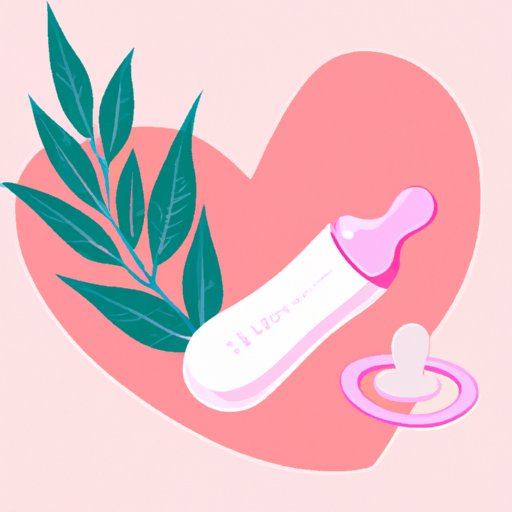
Introduction
After giving birth, a woman’s body goes through a lot of changes, and one of those changes is postpartum fertility. Generally, women are considered fertile from about two weeks following delivery, never mind the breastfeeding status. This period is known as the postpartum period, and getting pregnant during this period remains a concern for many. This article intends to help you understand the facts surrounding postpartum fertility and guide you on the best and most suitable options.
The Reality of Postpartum Fertility: Can You Get Pregnant Just 2 Weeks After Giving Birth?
The answer is yes; it is possible to get pregnant just two weeks after giving birth. This happens because postpartum ovulation may start as early as three weeks following delivery, and it may happen before the first menstrual period following birth. If appropriate precautions have not been taken, there is a risk that conception may occur. Precautions play an essential role in preventing unexpected pregnancies.
However, pregnancy that occurs before the body recovers fully from childbirth could have some complications, which could lead to premature delivery or even low birth weight for the newborn. If you are not ready for another pregnancy, you must use appropriate birth control measures.
Life After Labor: Navigating Birth Control Options for New Moms
There are many birth control options for new mothers, but while choosing the appropriate one, there are several factors to consider. Factors such as breastfeeding, postpartum checkups, and medical history carry inherent implications for birth control options.
For mothers who are breastfeeding, some hormonal birth control methods may affect milk production or transfer to the baby, while some may not. Therefore, it is crucial to consult with your physician regarding the best hormone-free methods that may be ideal for you and your baby.
The range of birth control options available includes barrier methods such as condoms or diaphragms, hormonal methods such as the pill and hormonal injections, and postpartum intrauterine devices that can last up to five years or follow-on uterine implants. While making the choice, it is crucial to consider how often you want to be sexually active and follow up on taking the contraception.
From Breastfeeding to Baby #2: How Long Should You Wait Before Trying to Conceive Again?
Breastfeeding introduces a variable that postpones the onset of ovulation, but it is not a reliable form of contraception on its own. Breastfeeding on demand and at least every four hours in the day and every six hours at night can postpone the onset of ovulation and can last up to six months after delivery, and in some cases, up to 12 months. With this variable, it is recommended that mothers should wait at minimum 18 to 24 months before trying to conceive again.
The recommended guidelines for conceiving again largely depend on how the first delivery went. It must allow a complete recovery of the mother’s reproductive system. After giving birth, the mother’s body requires considerable nutrients and energy to recover adequately, and repeated delivery could lead to its depletion. The recommended timeline for conception can be affected by the age of the mother and the number of deliveries the mother has had in the past. Paediatricians, midwives, and gynaecologists could provide appropriate information on optimal timing for conception.
Staying Safe and Healthy: Tips for New Moms Considering Pregnancy Soon After Birth
If a woman is looking to conceive soon after giving birth, it’s crucial to maintain a healthy lifestyle. Mothers can improve their health with healthy diet choices, reducing stress, regular exercise and practicing good hygiene. It is equally essential to visit healthcare providers frequently and maintain any medication recommended for adopting a healthy diet pattern, reducing stress, regular exercise, and practicing good hygiene. It is also essential to have a medical evaluation before planning on conceiving again.
Myths About Postpartum Fertility: Separating Fact from Fiction
There are many misconceptions surrounding postpartum fertility, but it is important to separate fact from fiction.
Some of these myths include that breastfeeding is an automatic form of contraception, but it is not entirely reliable on its own. Ovulation can still happen while breastfeeding. Another misconception is that if a woman has a c-section, she’s protected against an unintended pregnancy. This is false, and contraception must still be used.
When Motherhood Happens Too Fast: Coping with Unexpected Pregnancy Close to Delivery
The thought of an unexpected pregnancy when a new mother has barely recovered from childbirth can be overwhelming and stressful. Besides the social stigmatisation, financial constraints and other logistical challenges often arise. Support from the partner, family and community is critical in these situations. Mothers must also take care of their mental and emotional health. Making appropriate decisions and seeking help from medical professionals is crucial to keep safe and healthy throughout the pregnancy and beyond.
Conclusion
The postpartum period is a critical time for mothers, and fertility considerations should not be treasured with levity. While getting pregnant two weeks after giving birth is possible, it is essential to make the right decisions on birth control options that do not interfere with the mother’s health and ensure that appropriate medical care is taken.
A visit to the healthcare professional could be a great start in navigating the different options and making a well-informed, practical decision.





